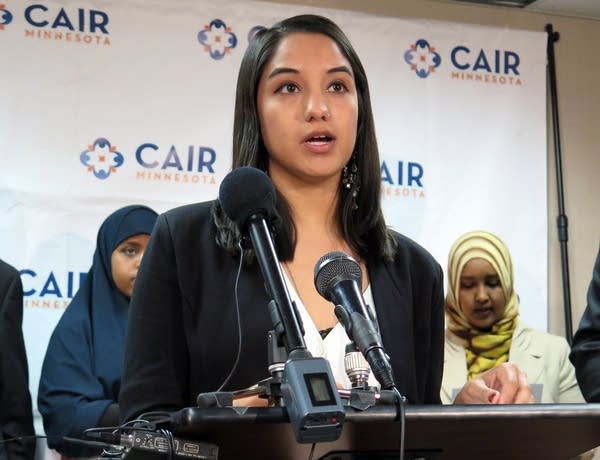CAIR: More than a dozen Muslims discriminated against at work

Go Deeper.
Create an account or log in to save stories.
Like this?
Thanks for liking this story! We have added it to a list of your favorite stories.
More than a dozen Minnesota Muslims say their employers discriminated against them because of their religious practices, according to a claim filed with the federal Equal Employment Opportunity Commission.
Amarita Singh, civil rights director for the state chapter of the Council on Islamic-American Relations, said Truth Hardware and Doherty Staffing Solutions violated the workers' constitutional rights to reasonable on-the-job accommodations for their religious practices.
CAIR-MN announced the claims Wednesday and it says the EEOC is investigating them.
Singh said the employees' requests did not represent an undue burden on the companies.
Turn Up Your Support
MPR News helps you turn down the noise and build shared understanding. Turn up your support for this public resource and keep trusted journalism accessible to all.
"The employees requested that they either be allowed to take breaks outside the scheduled time or that the break time be changed," Singh said. "Most employees only needed one additional or a different time for their break during each shift changed."
Neither company has offered a comment or a response to the allegations.
Several former employees of Truth Hardware and Doherty Staffing Solutions say at first, praying on the job was not a problem.
Nasteho Abdi worked on an assembly line at Truth Hardware in Owatonna, Minn., assembling door knobs and hinges. She said she told her employers when she was hired that she would need to take time from work to pray.
"The first few weeks of my job I was praying," said Abdi. "After those first few weeks they told me I could no longer pray."
Abdi said she and other Muslim employees complained to a manager, but to no avail.
Abdirahman Mahamoud said a manager at Truth Hardware interrupted him during a prayer to tell him to stop. He said through an interpreter that he felt insulted and disrespected. Mahamoud has six children and is an east African immigrant who came to the U.S. in 2005. He said religious freedom was one of the main reasons he came to America.

CAIR-MN executive director Jaylani Hussein said Mahamoud is like millions of other newcomers who are looking for a better life.
"To start the American Dream, many people started in the factories," said Hussein. "And today, those low-wage, low-skilled, paid jobs are being filled by new immigrants who lack a lot of the English proficiency, so they start there."
But employers are only required to make reasonable accommodations, Singh said. What is reasonable depends a lot on what kind of work companies do.
Singh said for instance, some manufacturers — like Truth Hardware — require adequate staffing of certain pieces of equipment to ensure safety and productivity.
But what it really comes down to, Singh said, is a willingness of employers to work with Muslim employees. CAIR officials say the organization received nearly 200 complaints from Muslims in 2015. Most of the complaints involved conflicts over praying on the job.
Singh said CAIR officials often go to those employers to help resolve the situation.
"Usually, the people we do have a conversation with — the solution tends to be a lot more simple than it seemed at first," said Singh. "I think it overwhelms the employer or they're just not open minded about it."
Singh said CAIR is asking that the companies change their policies to provide religious accommodations, provide back pay for lost wages and asking that the companies receive training and education about Islam.


